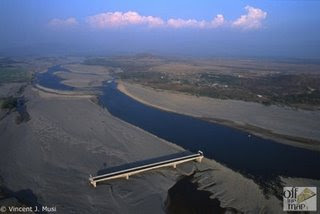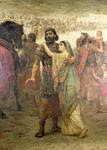Lambeth Conference – Brian McLaren
 On Monday evening, Brian McLaren spoke on Changing Contexts: Breaking Open Our Models for Evangelism. He spoke at a lively pace which was a struggle for some of those for whom English isn’t their first language and for those like me frantically trying to get down some of his highly quotable quotes. But I’ve heard nothing but high praise and I thought he was spot on. He has a most effective way of communicating that draws upon superb stories that not only entertain but say what he wants to say.
On Monday evening, Brian McLaren spoke on Changing Contexts: Breaking Open Our Models for Evangelism. He spoke at a lively pace which was a struggle for some of those for whom English isn’t their first language and for those like me frantically trying to get down some of his highly quotable quotes. But I’ve heard nothing but high praise and I thought he was spot on. He has a most effective way of communicating that draws upon superb stories that not only entertain but say what he wants to say.He began with the Choluteca Bridge, Honduras, which survived Hurrican Mitch in 1998. Amidst devastation and huge loss of life, the river got moved and now the bridge goes nowhere, standing as a monument to Japanese engineering. This was his way into explaining the shift from a modern to post-modern world. As I’ve already said, great quotes, but also he issued some basic but provocative questions: How do we create space for people to become authentic disciples of Jesus Christ? What if it were as simple as being an example?
I wish I’d got his definition of evangelism but I’ll have to listen again. To whet the appetite it began, ‘Evangelism is the gentle and respectful relational process of understanding and responding to people’s questions …’ He was deeply respectful and appreciative of Archbishop Rowan, and drew out those things that Anglican’s have going for them in this time of change. I loved his comment on the liturgy, ‘Liturgy which combines beauty, mystery, intelligence and clarity’.
On Tuesday he spoke at one of the many self-select sessions. It was billed as ‘Evangelism by Example’, and I guess that he addressed this in a roundabout way. But his approach was to continue with some of the questions that he didn’t have an opportunity to respond to on Monday evening. It became a conversation with many participating and no-one dominating, and looking especially at the questions that are asked by people not obviously part of the church.
The predictable question concerned why bad things happen to good people, and he explored the thinking behind the question, showing that people work with a model of the universe that is mechanistic, and one that needs challenging. Other questions that were striking included, How do you justify a book that reverences genocide and violence? And this one, though probably not often put so succinctly, In a multi-choice world, what do we choose and what’s worth choosing? This begs the question, what will happen if the multi-choice world begins to fragment, if consumerism should begin to crumble?
I liked the story he told about being distinctive. He was speaking with Seventh Day Adventists who asked him, ‘Can we really keep the Sabbath in this day and age?’ And he answered, ‘Yes, but you can’t think it makes you right.’
A question he asks often of people he meets who aren’t connected to a church goes like this, ‘I guess you don’t go to church. What do you think people like me need to hear?’ It’s a great question. He followed this with the lines of a song written by a friend, ‘An open hand is stronger than a fist, and listening is stronger than a shout.’ And his conclusion was the point that he made on Monday evening, biggest change requires example.


Comments
John